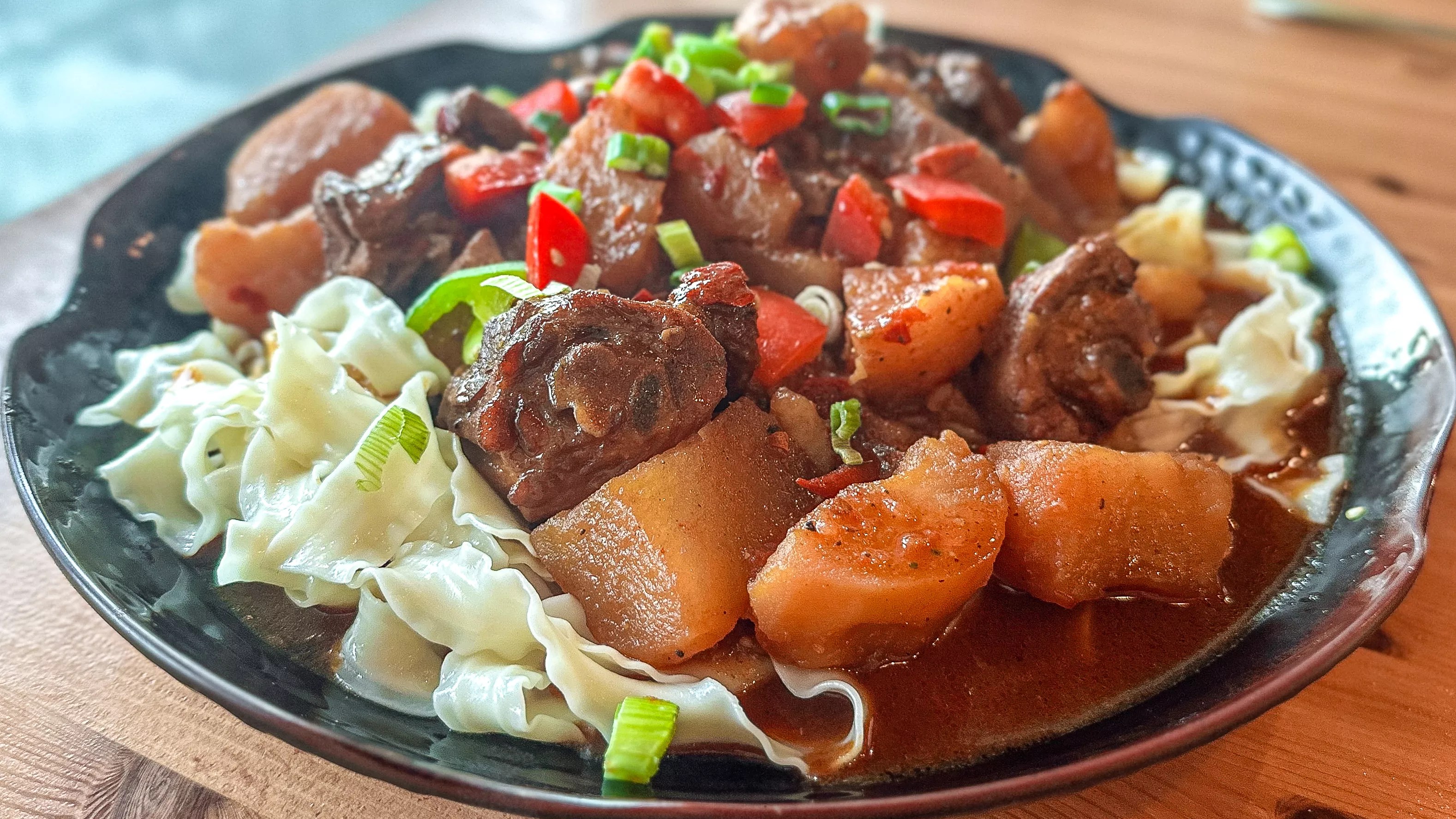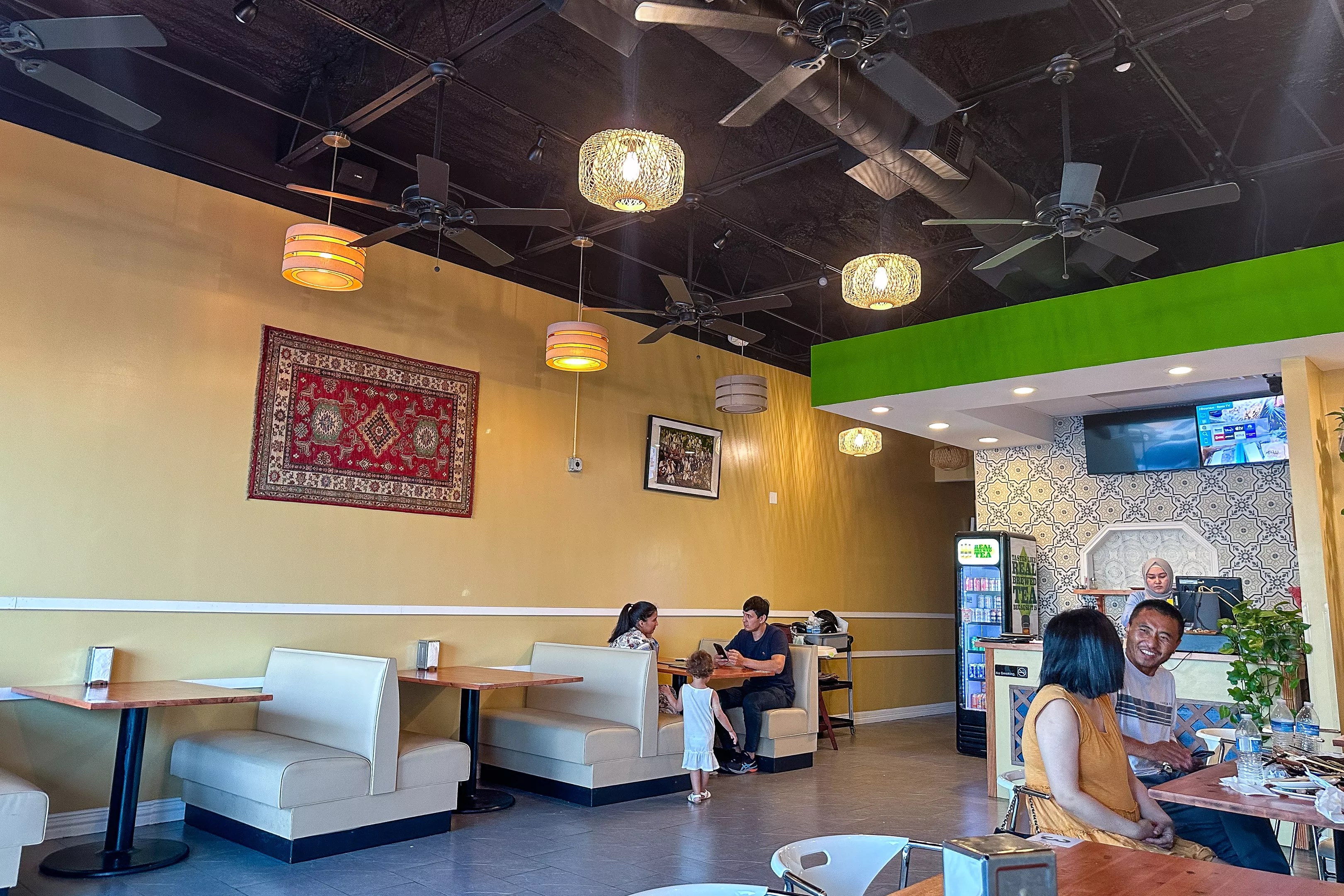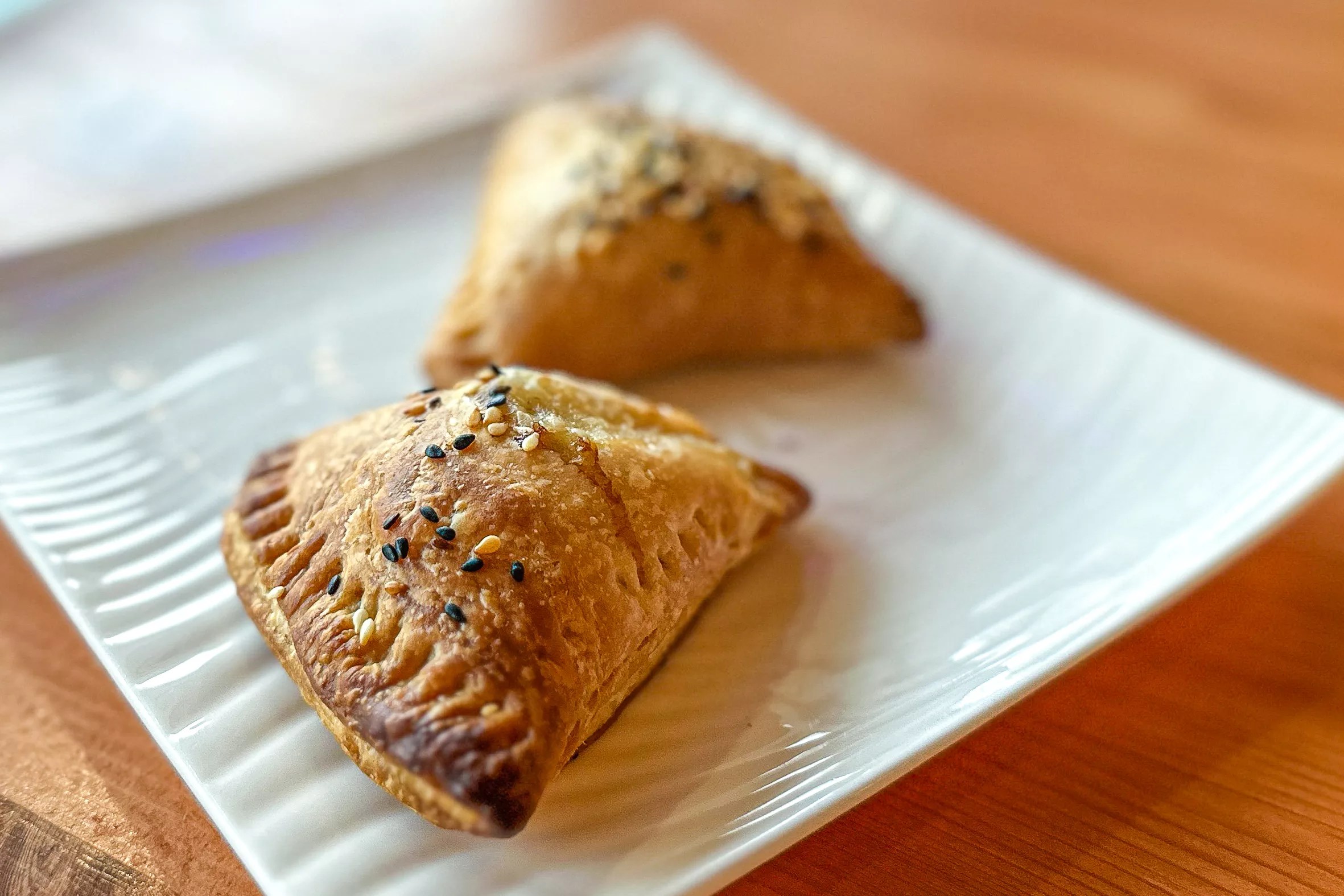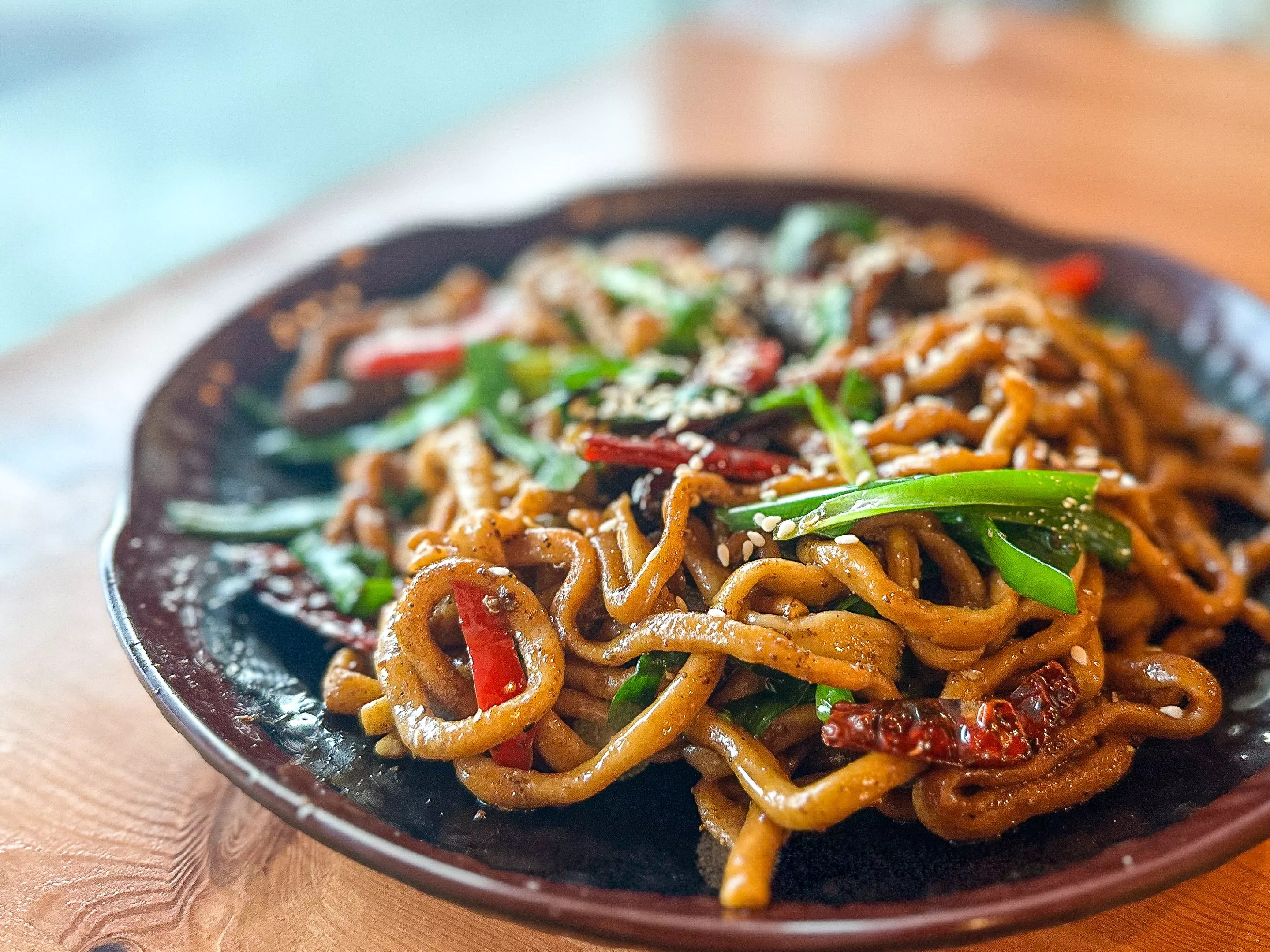
Hank Vaughn

Audio By Carbonatix
More than 50 officially recognized separate ethnic minority groups reside within the vast borders of China. The Uyghurs, a Turkic group native to the Xinjiang region in Northwest China, is just one of them. Most identify as Muslim, so Islam is an important part of their cultural identity.
Unfortunately, this cultural identity has put the Uyghurs at risk in their own country. Since 2014, they have been subjected to widespread human rights abuses by the Chinese government in what has been described by many human rights organizations as a genocide. They have been subjected to forced labor and sterilization and have been placed in internment camps; approximately one million Uyghurs are currently imprisoned in detention centers.
This article is ostensibly an informal first look at a restaurant during its soft opening, but cuisine rises out of culture and ethnic identity, and it’s important to have some knowledge of that culture and the people who formed it. If you’re going to try Uyghur food, perhaps it’s important to know of their current situation. However, one can simply eat and let the food speak for itself.
Uyghur cuisine prominently features roasted mutton and beef, rice dishes and kabobs, often eaten with the hands rather than with utensils such as chopsticks or forks. Since the majority of Uyghurs are Muslim, the food is predominantly halal.
Turan Uyghur Kitchen is currently in its soft opening, and thus one should bring a bit of patience and adventure when deciding to dine during such a phase. The menu is not extensive, and some items are currently not available. The friendly staff lets you know this up front and apologizes, so be nice. They’re still getting the kinks out. If you’re willing to be a bit flexible in this regard you’ll be rewarded.

Currently in a very soft opening, Turan Uyghar Kitchen offers Uyghar cooking in a simple setting.
Hank Vaughn
For the starter, we ordered some samsa, which are similar to samosas but oven-baked. They’re stuffed with marinated minced lamb, beef and onions, and are well-seasoned with cumin and white and black pepper. They come two to an order, each about two bites worth, and are brushed with oil and sprinkled with sesame seeds. They were more reminiscent in flavor and texture of pasties rather than samosas.

Samsa are little baked meat pies.
Hank Vaughn
For mains, we wanted to try the Laghman, which is perhaps the signature dish of Uyghur cooking. It’s on the menu (it would have to be), but it is one of the items that is currently not available. We were told that it is a bit complicated to create (one of the components is hand-pulled noodles made per order) and time-consuming, so instead we went with korma chop and the big plate chicken.

Korma chop
Hank Vaughn
The korma chop consists of a bowl of hand-pulled noodles that are dry-fried with beef, onions, bell peppers, dried chilis and chives. It made for an attractive presentation and had an interesting flavor that we couldn’t quite narrow down; perhaps that was the result of white pepper being too up-front.
The big plate chicken was simply marvelous (photo at top). We ordered the small for $26, and it was huge, easily feeding two people. This is a braised bone-in chicken stew served on a bed of flat noodles and piled high with potatoes, spring onions, garlic, and red and green bell peppers. Seasonings include star anise, cinnamon, clove, white and black pepper, and as the menu states “… and so on.” It had rich and unique savory flavors deep in character. We had plenty of leftovers, and the wonderful sauce added to the rice the next day was heavenly as well. If this were the only item on the menu, this restaurant should be considered a success.
Other items that were available that day included polow, a slightly sweet pilaf-style rice cooked with onions and carrots and served with a lamb shank for $17. When we come back for some more big plate chicken (and we will), this will definitely be sampled as well.
So, if you’re willing to be adventurous and are a bit flexible and patient during this soft opening, Turan Uyghur Kitchen is highly recommended.
2001 Coit Road, No. 163, Plano; Tuesday – Thursday, 11 a.m. – 9 p.m.; Friday, 3 p.m. – 9 p.m.; Saturday and Sunday, 11 a.m. – 9 p.m.; closed Monday.